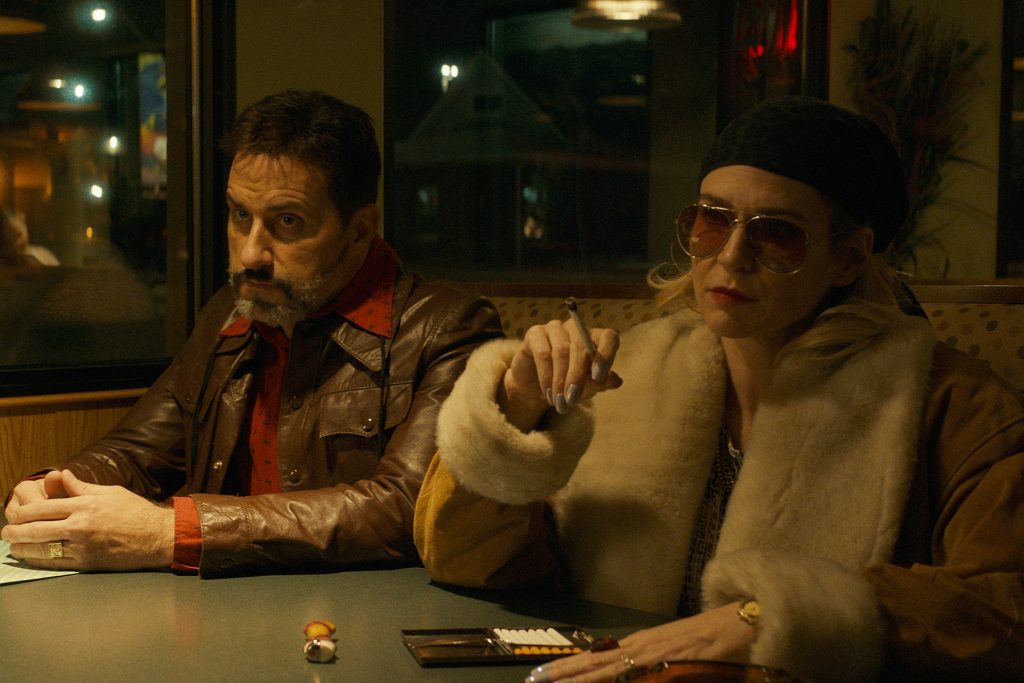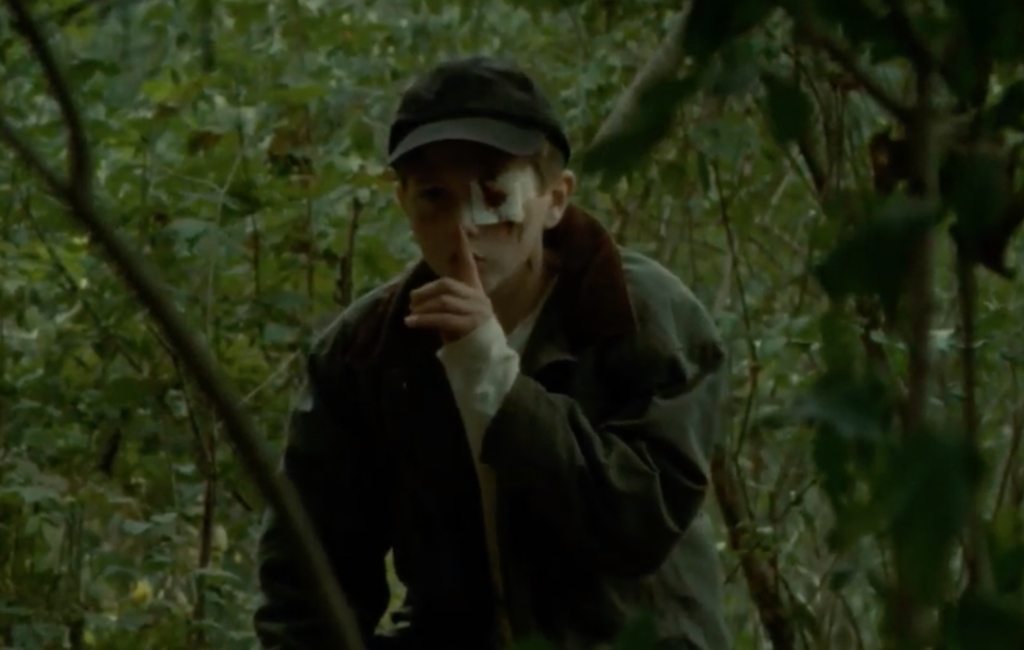By Anne Brodie
Albert Chin’s enigmatic mystery Disappearance at Clifton Hill takes place when Niagara Falls was at its tacky peak as an exploitative tourist trap. It’s inspired by an incident Shin witnessed as a child and it reverberates through our minds long after the film ends. As director and co-writer, Shin’s eerie psychological thriller verges on horror; the other half of the story takes place across the Niagara River, where a lounge act involving a man, woman and tiger draws tourists hoping to see something go wrong. Quebec’s Marie-Josée Croze who plays Mrs. Moulin faced several challenges, including working up close and personal with an enormous tiger.
There was a cage between you, but were you ever close to the tiger?
Completely. Completely close to the tiger. And what is interesting, is that the tiger was acting with me, basically. It was amazing because basically, a tiger is like a cat. And they’re sleeping all the time. And to not let them sleep, you must give them a little bit of food, not too much food, they’re sleeping. And so, the guys gave him a small piece of food to let the tiger be happy, but not too happy that he’s going to sleep. And she was a little bit lazy like that. And then as soon as we shot and it; the action and the silence were there, and I had a physical reaction because I turned, I saw her, she was acting. I saw that. And I was like, wow. She was overacting in a way. She was doing so many movements.
And then I asked before we started, asked Albert, “Should I go close to the cage? What is the distance you need me to go?” And he said, “Go as close as you can, Marie.” And I was like, “Okay.” And I was projecting to go at a reasonable distance. But what happened, she was so good. She was looking at me like that, and I go to this distance. And there’s a moment in the film, I put my hand out. It’s dangerous. It was for real. I did that because of the tiger, you know —
Because you connected.
The tiger just hypnotized me. I wish my mother — she’s not in this world, she would have been so mad at me hearing that, that I was putting my face like that next to the tiger. but I was in complete trust with her. No, it’s funny how animals — I can read them. And I think you can feel that there’s something — I say that, but it’s ridiculous because she could have hurt me.

We don’t see Mrs. Moulin for a long time, except on VHS and old grainy photographs. She’s a mystery. And then we meet her, and she’s totally out there, not mysterious.
This is something I wanted to express with that character. I don’t know why. It’s my way of working. Sometimes it’s really like ideas coming like that, and it’s not intellectual, just something fun I wanted to do with that character. It’s exactly what you’re saying about the mystery that we feel in her and the way that she is such a person that is disgusting. She’s not nice. She’s kind of a — I have a problem with that word. When you’re not honest, how do you say that in English? Hypocritical? She has two faces, as a lot of people in that business, I would say. So, it’s a little bit of an observation, I mean, I’m coming from a very normal life. My parents and my family were normal people. And being in that business, I meet a lot of people like that with two faces, people that — you imagine they have such a big heart and they’re saying, “We save the planet, we save the world,” and then in real life, they’re very vulgar and have no education. It’s something that. I find it funny. So this is what I try to add in that character, this very deep and profound character, but a character that you don’t see a lot and you just discover her in, you know, at a certain moment, you have to add things to make it fun.
This is Albert’s story. How did you work with him?
It’s fun working with Albert because he’s explaining what he wants and it’s clear, and you feel that it’s deep and profound and very, very intense what he wants. And I actually — it’s not coming with words, you know. It doesn’t explain, “I would this, this, this,” it’s more like I can read him easily because he never lies, you know. He’s a real person. And he’s not manipulating actors. He’s with you, he’s watching what you’re doing, and you can feel when it’s good, he’s like, “Mm-hmm, it’s really good. It’s really good.” And if it’s just like, “Yeah, it’s good. We’re going to do it again,” it means it’s shit. Most directors are like that because what we’re doing is more instinct than something else. Sometimes we can put words on our work afterwards. But even for the writer, sometimes there’s a lot of instinct, I think so. For me when people talk a lot, it doesn’t help me. I don’t find the truth in the words. I find it in the energy.

That is so interesting. You know, and I’m thinking of her when she’s being a show person, a show woman and she’s got a massive smile and trashy makeup and that outfit.
Yes, yes. We worked a lot on that. When I say we work a lot, it’s very fast because we shoot my part in three days, so it was intense, really fast. We try to create this character; she’s supposed to be a star in her country. So, she has to have that outfit, special outfit, special hair, special makeup. And of course, it helps me a lot, a lot. I arrived when they were almost finishing the film and it was five days left, and I jumped into the adventure. And the pressure I had, it was because — what you’re saying is true because it’s coming from his own life and it’s a story that happened to him in a way. I was a little bit afraid because everybody was so great in the film and the director was so happy about the dailies and stuff, and I just arrived at the end. I was like, “Oh my God, maybe I’m going to ruin it.”
Did you –The film is set in an earlier time. Were you Were aware that Niagara Falls had this seedy side to it?
Yeah. I knew and I didn’t know. I mean, it’s a mix between — I know that that exists because we saw a couple of old films. I know that Niagara Falls was like Las Vegas or stuff that’s tacky, cheesy. So, I knew of that. I’m not saying that in a negative way, but in certain places it’s for tourists. So, I know it’s not all the Niagara, I’m not saying that, but there’s something about it.